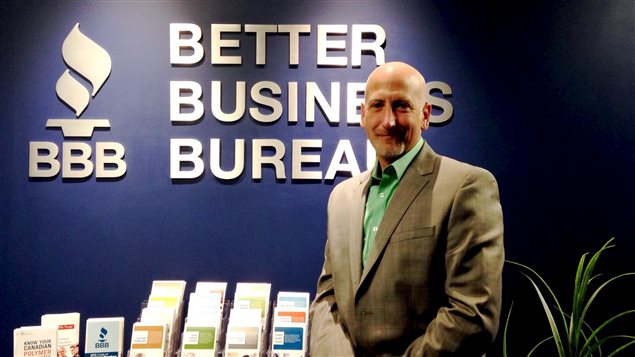Canadians were bilked of about $71 million in 2015—about $10 million less than the year before, according to the Better Business Bureau (BBB). But that’s only counting the amounts they admit to having lost.
‘Tip of the iceberg’
“That is likely the tip of the iceberg,” says Peter Moorhouse, president of the BBB in the Atlantic provinces. “Very often people are so ashamed, so embarrassed by having been taken advantage of that they don’t report it to the authorities because they don’t want to appear stupid or gullible.” BBB estimates only five per cent of losses are reported.
ListenThe top extortion scam listed by BBB involved people pretending to be tax collectors with the Canada Revenue Agency. They extracted payments of $2.9 million by telling people they had to pay immediately or risk losing their homes or some other dire consequence.

Calls can be ‘quite terrifying’
“CBC (the public broadcaster) has got a recording of a call and it’s actually really quite terrifying to listen to,” says Moorhouse. “The pressure applied is huge and you can see why people would be afraid.”
The top heartbreak scam involved people creating online personalities who cultivated close relationships and they requested ever increasing amounts of money. Those who admitted being victimized lost $15.6 million.
Six million dollars were lost by people who believed scammers who told them they had won a lottery, but had to send money to enable the transfer of prize money.
Beware phoney job offers and phoney relatives
People were offered jobs that didn’t exist, asked for money from would-be relatives in trouble, asked for loans and were sold items that didn’t exist or belong to the putative seller.
To avoid being taken in, Moorhouse says to remember that if the pitch sounds too good to be true, it probably is a scam. He also advises people to be suspicious of callers applying heavy pressure. Legitimate callers like banks or utilities will let you hang up and take the time to authenticate the call.
Young people divulge information
Seniors are often the victims of scams but Moorhouse says young people are victimized as well. They usually have clean credit ratings so are an attractive target of identity thieves. They also are prone to divulging quite a bit of information on social media which makes them easier targets.







For reasons beyond our control, and for an undetermined period of time, our comment section is now closed. However, our social networks remain open to your contributions.